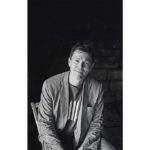Focus: Safeguarding Our Future
By
3 years ago

Focus on…. A Call to Arms
Medics, engineers and cyber geeks are the armies of today’s frontline and we need more of them as the pace of change accelerates, say professionals and educationalists
The Medic: Polymath Hugh Montgomery, who is Professor of Intensive Care Medicine at University College London, explains why doctors are key to a better life

If there is one thing we have learned from the pandemic, it’s the importance of medicine, technology and collaboration between scientists in fighting and managing disease as one challenge follows another. The rapid development and roll-out of a properly tested, working vaccine in humans in less than eight months was nothing less than extraordinary and owed much to ongoing work in laboratories here and in America.
Oxford had long been working on their ChAdOx1 type approach to design a vaccine against malaria. Pfizer had been working on the concept of RNA vaccines for many years. So when SARS-CoV-2 hit, they were in pole position to say, ‘right, we have got a method here. Let’s get on with it.’
It’s an exciting time with big changes in vaccine technology because as one challenge is met, another presents itself. Now we have to stay ahead of the curve on vaccinations for variants which will show up. Recent research on the gut found that half the cases in an admittedly small study still had replicating virus four months after infection – and those viruses mutate over time. Nature always finds a way. We are not safe until everyone is safe.
The next challenge will be finding a vaccine providing immunity to ‘all’ coronaviruses. That’s a big change from where we are now with vaccines against one specific virus or variant of a virus. Like all vaccines, that requires work from mathematicians, engineers capable of making refrigerators and glass ampoules, virologists, geneticists, epidemiologists, and statisticians. And that is just one tiny part of medicine.
The range of things you can do in medicine is extraordinary. From public health on the ground including outbreaks of diarrhoea or the epidemiology of a Covid pandemic (looking at how to stop disease spreading and monitoring its path), to histopathology (looking at diseased tissue), forensics, to seeing patients directly for conditions of the skin (dermatology), joints (rheumatology) and more, through to being a trauma surgeon and the things people tend to see more on telly, the whizz bang, sharp knives, blood everywhere, bombs going off etc.
The list is endless: genome sequencing and understanding ethno-genetics, how to gene edit or treat cancers or apply AI to mathematical models. And then there is the more intuitive side of things, holding someone’s hand as they die in a hospice or telling a person or their family that they have a terminal disease. These things are chalk and cheese but are all medicine and all need doctors.
Working in an intensive care unit, I am at the spangly side of medicine with machines that go ping, lots of money and drama. It’s the stuff of TV series. Ultimately, however, health care is societal. Most of what I have on my ICU would go away completely if society were structured differently.
We have a public health issue. Most people don’t think of this as being about medicine but there is a disconnect. Half of all cancers as well as 89 per cent of cardiovascular disease in this country is entirely preventable by good social policy. Professor Sir Michael Marmot’s research on social health reveals how inequity and poverty are colossally bad for health; currently, there is a 12-year disparity in life-expectancy from the richest to the poorest of the land.
We need the right taxation policies to make it harder to eat rubbish and cheaper to eat healthy food. We need to make it easy, no matter what your level of wealth, to walk or cycle. If you are poor and a single mum today, you probably can’t afford a bike and if you had one it would most likely get stolen, and there’s nowhere safe to take your kids anyway.
Address those issues and other miscreant behaviours would fall away: alcoholism, cigarette and drug addiction, lack of exercise, poor diet, obesity, diabetes and associated illnesses. The same things which make people physically healthier, also improve their mental health. Access to green and blue spaces, exercising together, planting trees and a bit of digging is good for everyone. It keeps the air clean and helps mitigate climate change.
There is a whole raft of things you can do with a good medical degree and good training. I was invited on an expedition to Greenland to look at the implications of climate change on health – not many people get to do that. NASA needs doctors for space crews, so do the military for expedition work and exercise training, as do oil rigs and cruise ships, you name it. People are in occupational health all over the place and we need more.
The nub is to find the thing which enriches you and enriches other people and to ask yourself what will bring you joy in 40 years’ time so that you can look back and say ‘I really feel I helped people and made a difference’ as opposed to ‘I got richer’. There’s that saying, ‘no one on their death bed said I wish I had spent more time at work’. But I see exactly the opposite. I see people who say ‘I wish I had worked harder. I wish I had done something more valuable with my life’. Medicine gives you that opportunity, and that’s when the fun starts.

READ MORE FROM AUTUMN WINTER 2021



